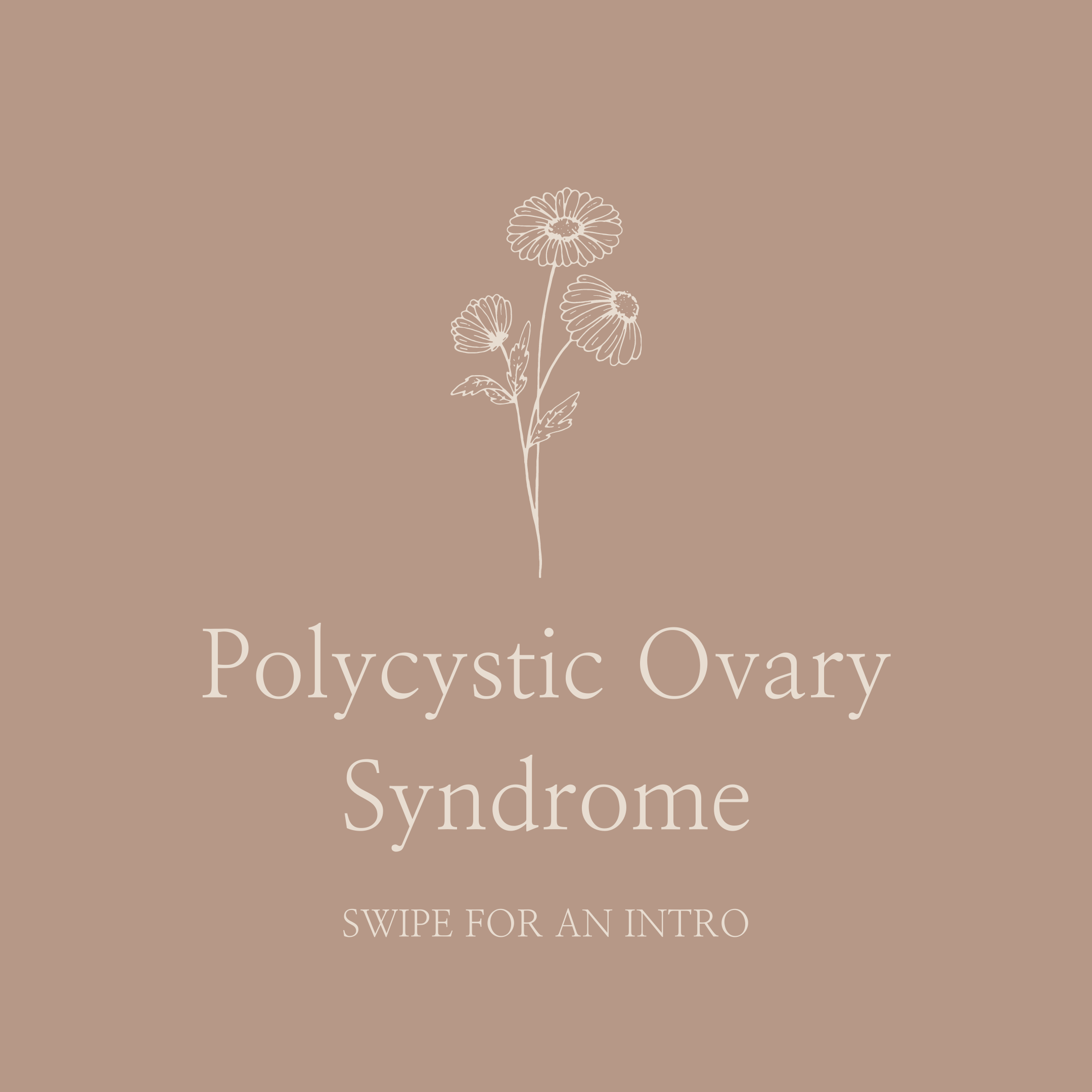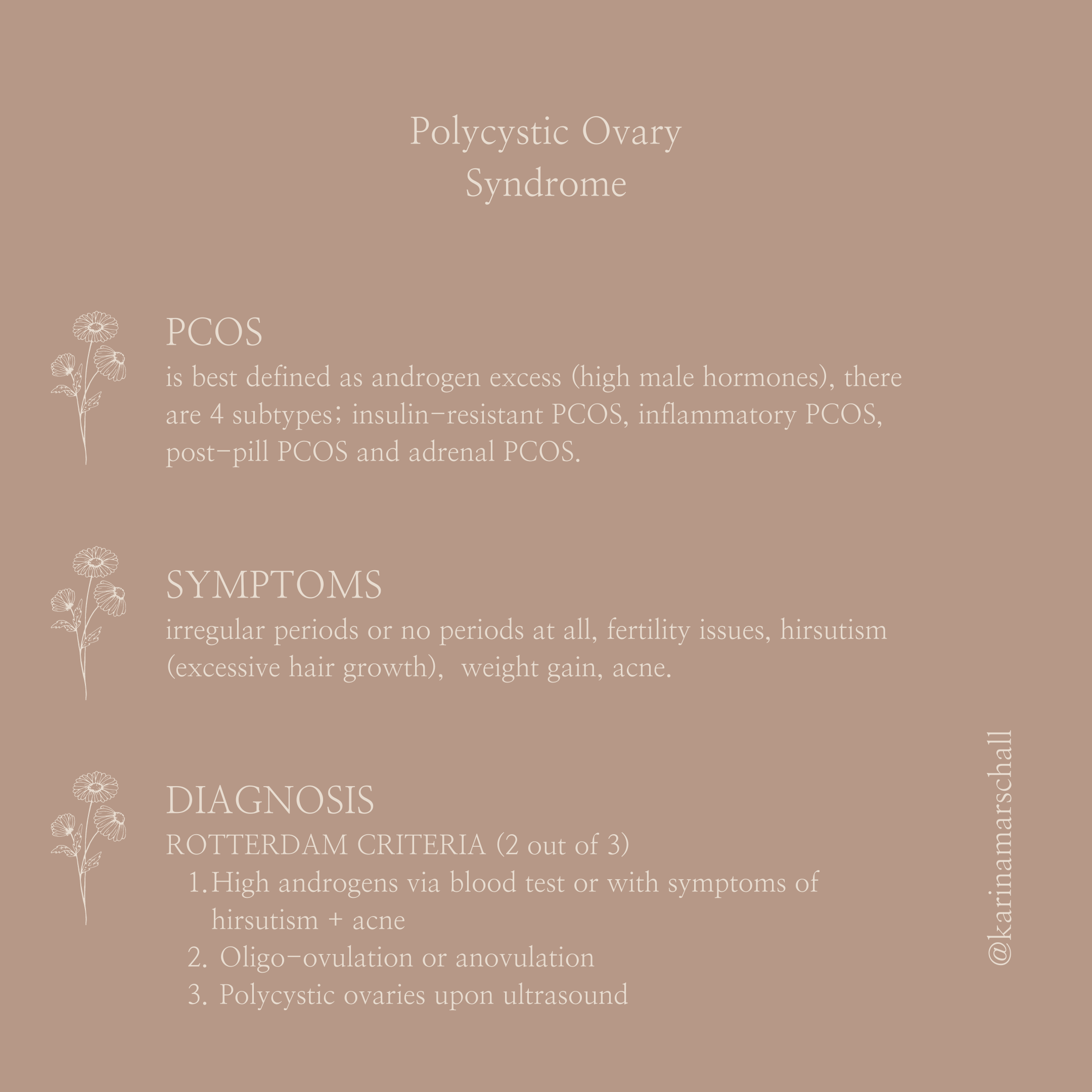Polycystic Ovary Syndrome (PCOS)
PCOS affects 1 in 10 women but it can be so poorly managed in the mainstream medical system. PCOS is best defined as androgen excess (high male hormones), this leads to symptoms of irregular periods or no periods at all, fertility issues, hirsutism (excessive hair growth), weight gain, acne etc. Diagnosis through your doctor follows the Rotterdam Criteria (you must have 2 of the 3), high androgens via blood test or with symptoms of hirsutism + acne, oligo-ovulation or anovulation and polycystic ovaries on ultrasound.
But, did you know there are actually 4 subtypes of PCOS? Let’s take a look into these.
Insulin resistant PCOS by far the most common and is due to high insulin and leptin which hinders ovulation and cause the ovaries to make excessive testosterone
Post pill PCOS ~ hormonal birth control suppresses ovulation (it’s job) and for some after ceasing birth control ovulation may not return, this can also contribute to insulin resistance.
Inflammatory PCOS ~ chronic inflammation of any kind can stimulate the ovaries to make too much testosterone.
Adrenal PCOS ~ driven by abnormal response to stress
Naturopathic case taking can help find the driving causes behind your PCOS and help you regain your health and a regular menstrual cycle!
Take a look at this infographic on potential Naturopathic treatment options for PCOS.


Are you ready to make changes to your diet and lifestyle to help your PCOS?

